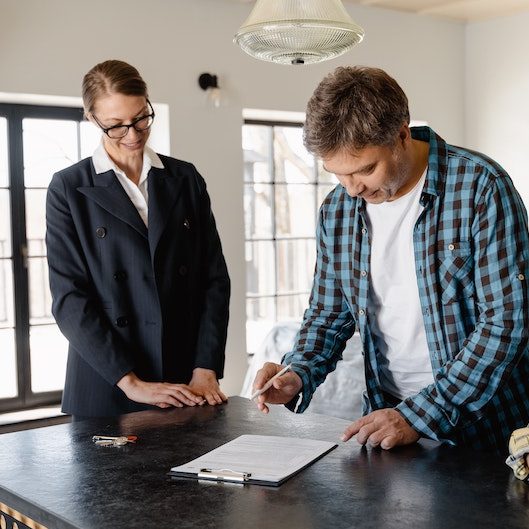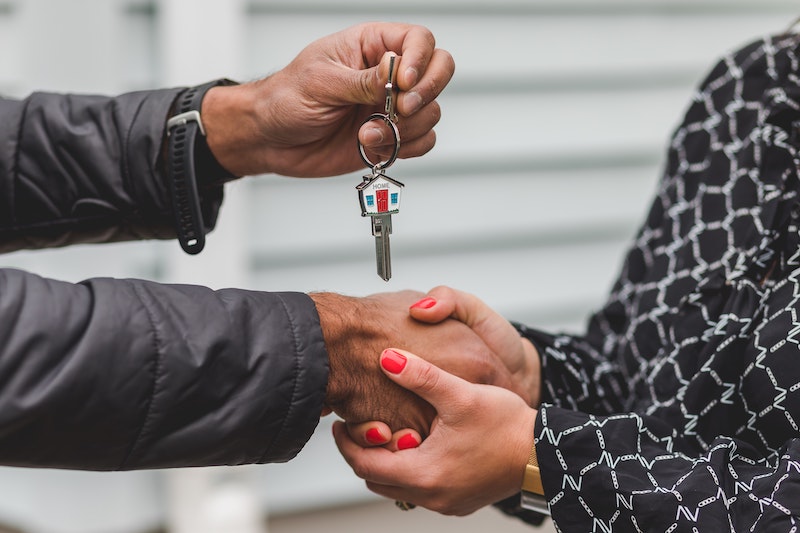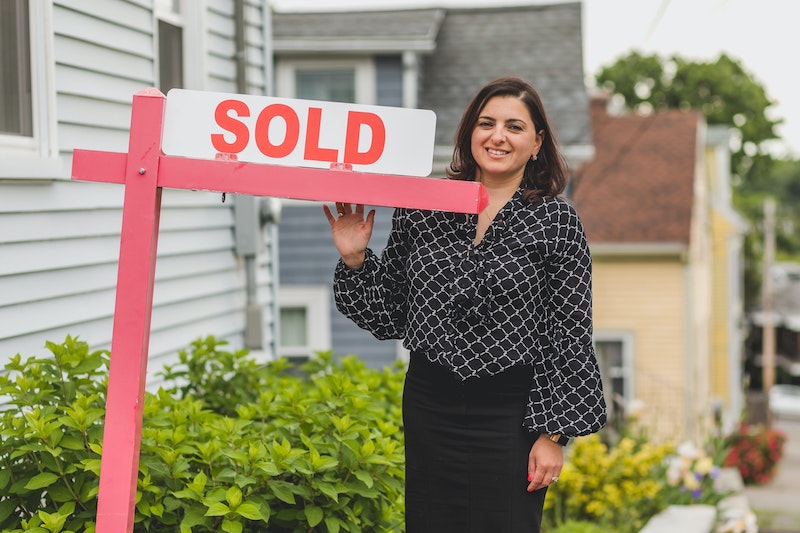When people start to consider a house purchase, the first port of call is usually looking into mortgages; however, it is not strictly necessary to take out a mortgage in order to buy a house. In some cases, it is possible to buy a house without entering a long-term mortgage agreement. Here we share the different alternatives available for those looking to buy a house.
Alternatives to Buying a House Without a Mortgage
If you are looking to buy a house, you might be able to enter the property market without the need to take out a mortgage. Here are some alternative methods for buying a house:
- Seller financing
- Rent to own
- Borrow from a retirement account
- Borrow from your parents or relatives
Seller Financing
Seller financing, or owner financing, is when the homeowner becomes the mortgage holder. This means that the owner will sell to you directly and will finance your purchase. Rather than pay monthly payments to a bank, you will pay them to the owner directly.

As this is an agreement before owner and buyer, it is less of a formal arrangement than a mortgage. Subsequently, it is recommended that any transactions should be recorded and that a Real Estate Purchase Agreement should be drawn up. This agreement is a formal document that will detail the sale and outline the payment details. In the majority of cases of seller financing, the seller will not transfer the property title until they have received the final payment; at this stage, they will use a Warranty Deed to transfer the legal ownership into your name.
This type or arrangement can be difficult to find as sellers are typically reluctant. However, that being said, some are open to it, especially if they have already fully paid off their mortgage and don’t need immediate cash from the sale.
Rent to Own
Renting to own is a good option for those who cannot qualify for a mortgage or who are unable to save for a down payment. In a rent to own arrangement, you will pay the owner an option deposit; this means that you will have the option to purchase the home after you have rented it for a fixed period. This period will vary between sellers but is usually between 1 to 3 years. During this time, the owner will use a proportion of your monthly rent to put towards the purchase if you choose to buy the home at the end of the Lease Agreement.
Rent to own properties can benefit both sellers and buyers. It benefits buyers as rent to own properties are often an easier sell. Also, it allows buyers to continue to build their credit score whilst not worrying about wasting their money on rent. Should you decide to purchase the property at the end of the Lease Agreement, the option deposit and rent credit will have already made a huge contribution towards the purchase.
Borrow From a Retirement Account
If you have put money aside into a retirement account, you could use these funds to purchase a house. It is essentially a way of borrowing from yourself by using the set-aside money earlier in life. From that point of view, it saves on the long-term monthly payments of a mortgage and means you avoid the issue of accumulated interest. However, this method also comes with a price.

If you are below a certain age and want to withdraw money from your retirement funds or other savings account, you might have to pay a penalty on the withdrawal and also pay taxes. Additionally, if you lose your job, you will need to repay the money within a 60 day period.
Borrow From Your Parents or Relatives
If your family has money sitting around which they are happy to lend to you, this might be a good alternative to taking out a mortgage. It means that you will not enter a long-term mortgage contract with obligated monthly repayments over many years.
If you want to borrow money from parents or relatives in order to buy a house, you can hire a lawyer and get the loan agreement written up. You may also need to check with an account that the loan does not appear as a gift, in order to avoid the gift tax.
However, this type of “loan” is not always recommendable as it can put a strain on familial relationships
Can I Buy a House With Cash?
It is possible to buy a house with cash if a buyer has enough of their own funds to cover the full purchase price of the house, removing the need to take out a loan. This cash could come from a number of places including the sale of another property, savings account or investments.

Buying a house with cash can be advantageous for the buyer as it means they are not trapped by the financial obligations of paying off a long-term mortgage. It can also speed up the process as cash transactions are typically faster than taking out a mortgage.
What Are the Advantages and Disadvantages to Buying a House With Cash?
There are a lot of benefits to the cash purchase of a property. For the buyer, if they are able to offer the full value in cash, it may make them more appealing to sellers. Often, sellers prefer to sell to cash buyers because they do not have the risk of external financing falling through at the last minute. For cash buyers, it negates the need to be approved for a mortgage means they are ready to buy.
For this reason, cash-only purchases tend to be much faster than awaiting mortgage approval. Thus, sellers who are in a rush to close could be far more willing to work with a cash buyer than entertain the possibility of a buyer with a mortgage.
Another positive of a cash purchase is that the buyer is able to skip the costs and fees associated with mortgages including mortgage insurance and interest rates. This could save them a great deal of money in the long-run as it means they are free of the typical financial long-term obligations of a mortgage (typically 30 years). This saved money could be used to fund future purchases.
Cash purchases typically mean lower closing costs. When taking out a mortgage, there will be certain service charges at closing such as an application fee or lender fees. With cash purchases, there are no lender-related closing costs. On top of that, the closing process tends to be far simpler and faster, as you do not have to wait for mortgage approval and there are fewer steps to the process.
With a cash purchase, unlike mortgages, the home is yours upon purchase. For mortgages, if you miss a monthly mortgage payment for any reason, you are at risk of losing your home. However, for cash purchases, you own your home outright and there is no risk of you losing your home to foreclosure.
On the other hand, there are some downsides to paying for a house in cash. One of the major downsides is that your money is completely tied up in the house meaning that you have no liquidity. For example, if you find yourself in a difficult financial situation, it is difficult to access any of the money that is tied up in your property, despite it being an asset. If you have a mortgage, you will only be making monthly payments which leaves you with available cash should you need to cover any other expenses.
Even though you do not have monthly mortgage payments if you are a cash buyer, you still have many other household-related expenses that you will be expected to pay, including homeowners insurance, property taxes and utility bills.
